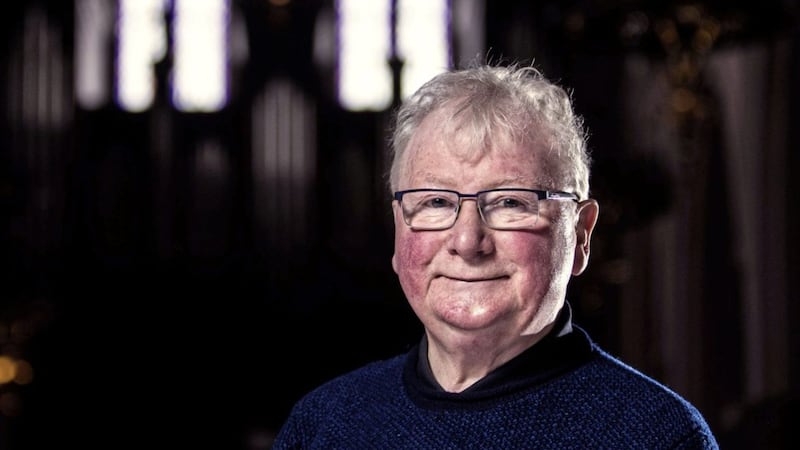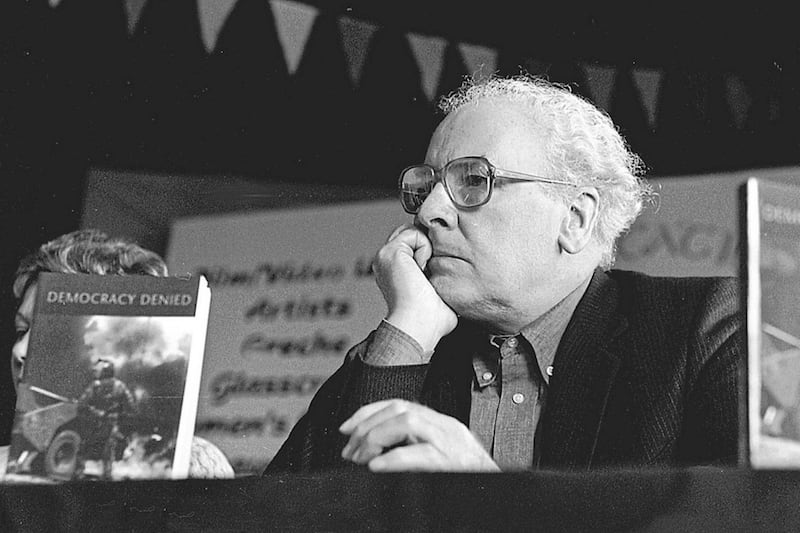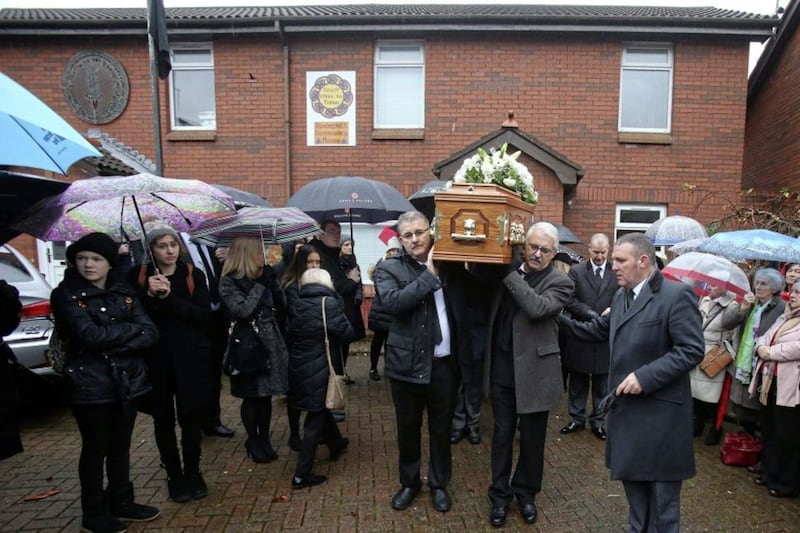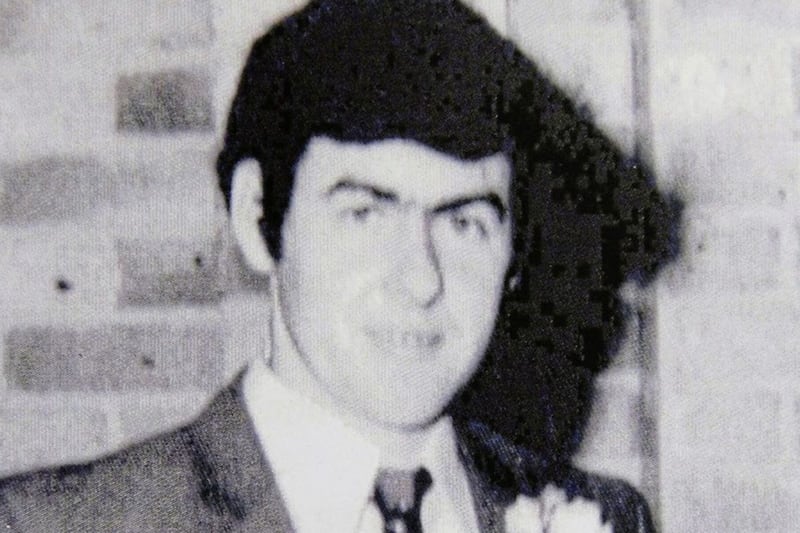I was ordained along with my cousin, Seán McGrath, by Bishop Patrick Mulligan in St Joseph's Church, Ederney on April 18 1971. It was a historic day for the Cúl Máine parish - two sons of the parish ordained in the parish and sent out to preach the Gospel.
Seán was ordained for St Patrick's Missionaries, Kiltegan and went off to the West Indies and then Brazil where he spent most of his life with the poor.
I was ordained for the Diocese of Clogher and have spent most of my life in schools and parishes in the diocese. In the bad old days this meant crossing the border many times and being asked many questions - and they were not about the Catechism...
Much has changed in the Church, in our country and in the world - as well as in me - since I was ordained 50 years ago.
Change has been a constant during my life as a priest, though not as much in the Church as I would like, especially regarding the role of women. Change is necessary - it is a sign of life.
There are always some who try to obstruct change. They may succeed for a while but eventually change will happen anyway, so it is better to go with the flow. I think it is a sign of the Holy Spirit at work in our world.
Catholic priests are now an endangered species, in Ireland anyway. When I was in Maynooth there were about 500 students preparing for priesthood. Now there are hardly 50.
The world has changed in so many ways - communication, transport and travel - and now the coronavirus has changed all our lives and the life of the Church.
The people have had to pray in their homes, which is where the Church first began. Perhaps out of this experience a new Church of small cells will be born - groups of people praying and reflecting on the Word of God.
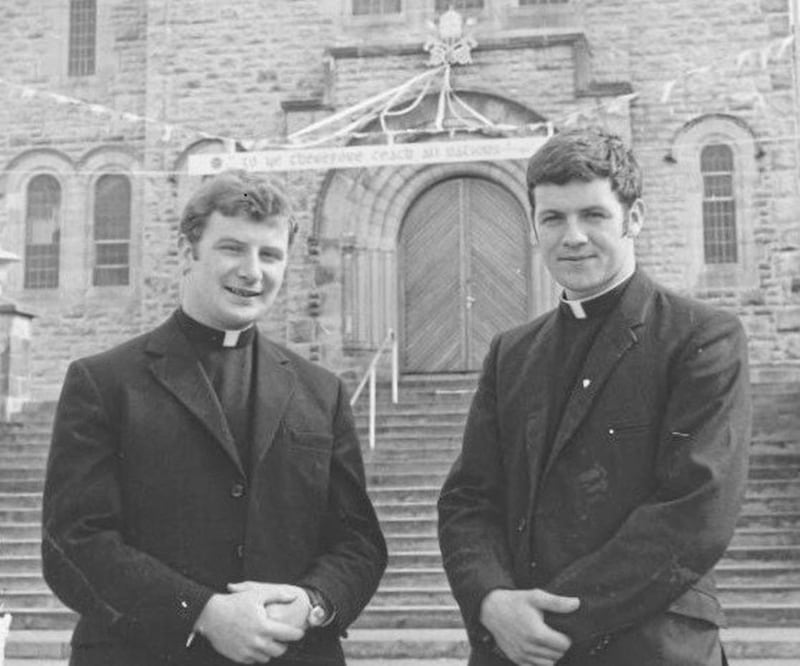
Pope John Paul II was asked on one occasion what was the most important day of his life. "The day I was baptised," was his answer.
Some people thought he might have said the day he was ordained a priest or made a bishop or even the day he was elected Pope; but no, he said it was the day he was baptised.
That is an important statement because it underlines the fact that we who are baptised are all priests and all called to witness in our various ways. All who are baptised share in the priesthood of Jesus Christ and all share the responsibility of spreading the good news that goes with that. This is becoming more and more recognised.
I too was brought for baptism, when an infant, to the old chapel in Moneyvriece, Ederney dedicated to St Joseph.
Baptism is where it begins for all of us. It is also important to realise that the Church is, as Pope Francis keeps reminding us, a missionary Church, a community that reaches out and that supports the downtrodden and cares about the natural world.
My own story, like that of all priests, popes and bishops, has to be seen within the context of the baptismal priesthood. To be called and to be ordained by the bishop is the traditional way that Catholic priests have continued to minister in the Church.
The ministerial Priesthood is seen as a vocation - a calling to spend one's life in the service of the Gospel and of the Church. Priests are called to be signs of another world and of other values - and to spread the good news that God is a God of love, mercy and forgiveness.
I suppose there are many reasons why I decided to opt for the ministerial priesthood 50 years ago.
I think that I was first attracted to the ministerial priesthood as a young boy when I served Mass for Fr Felix McKenna in the old chapel in Moneyvriece which was half a mile from where I lived.
Fr McKenna was an older priest, a very saintly man who built the new church in Ederney dedicated to St Joseph. He lived a simple lifestyle and was a man of prayer. He was greatly loved by everyone - including people in the parish who did not belong to our Church.
My mother and father taught me to have respect and reverence for everybody and everything - the animals and nature. They taught me my prayers. The other day Pope Francis said that "the essential task of the Church is to pray and to teach people how to pray and how to hand on the lamp of faith and the oil of prayer from generation to generation".
We belong to a great and rich tradition, and we have a responsibility to hand the best of what we received to the next generation.
There were two other younger priests in the parish when I was growing up - Fr Tom Marron and Fr Gerry Timoney - who also made an impression on me because of their different personalities and talents.
When I went to St Michael's College in Enniskillen in 1957, I met other priests. Fr John McElroy made a deep impression on me. I liked his humility and his expertise as a teacher.
When I started thinking about the future and what I could usefully do with my life, the idea of priesthood kept coming up, even as I enjoyed going to the dances and the carnivals - I even learned the hucklebuck.
Deciding to be a priest was a fairly radical choice even back then. To choose the priesthood, then, was an affair of the heart not just the head. The idea was coming from somewhere very deep within. I could not ignore it.
I remember in my last year at St Michael's being very impressed with Pope John XXIII who organised the Second Vatican Council, which has impacted on all our lives.
At school in the religion class we were reading his encyclicals Mater et Magistra and Pacem in Terris and that was probably the first time I heard of the social gospel about justice and human rights and respecting the dignity of every human being. That made a lot of sense to me even then.
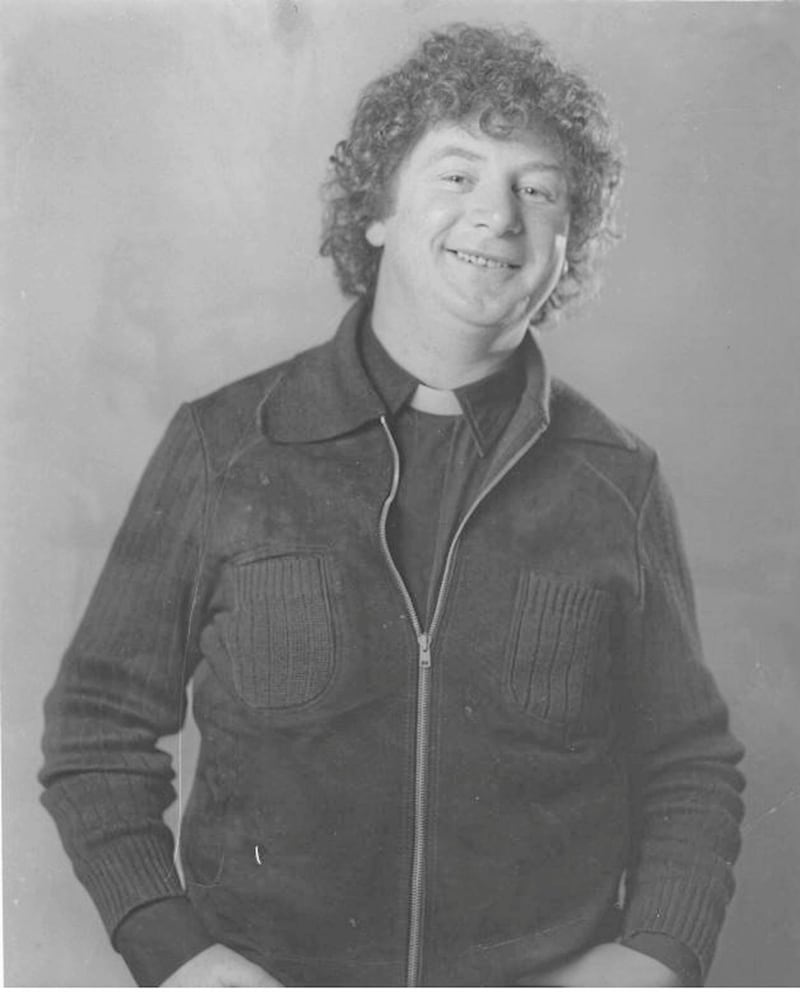
It has made more sense to me as the years went on and as I discovered the prophetic side of our Christian religion, which we must remember emerged within Judaism.
I came to understand that the Gospel was highly social and political as well as personal. I came to understand that the idea of love had a deeper meaning of solidarity and compassion and justice.
The Cross on which Jesus was crucified is the central symbol in the Christian religion. It was a sign of God's great love for all humans in this broken and socially divided world.
The Cross is a reminder and will always be a reminder of the constant suffering of humanity as a result of the corruption of political power and the refusal by some to accept the dignity of all.
The story of the Cross and the Resurrection made a deep impression on me when I was young, and it still inspires me today.
If Jesus had not been crucified, the Cross would not be the central symbol of the Christian religion. The fact that Jesus was crucified on a Cross by the authorities who ruled the world at that time gives his story a meaning that it would not otherwise have.
The authorities at the time - religious and political - rejected him with his original notions about God and the Kingdom of God.
The Resurrection is God saying 'No' to those powers that killed him. Good Friday and Easter have a strong political meaning as well as a deep personal meaning for every person who believes that Jesus was sent by God. The Cross and Resurrection are central to our faith both as individuals and as a believing community.
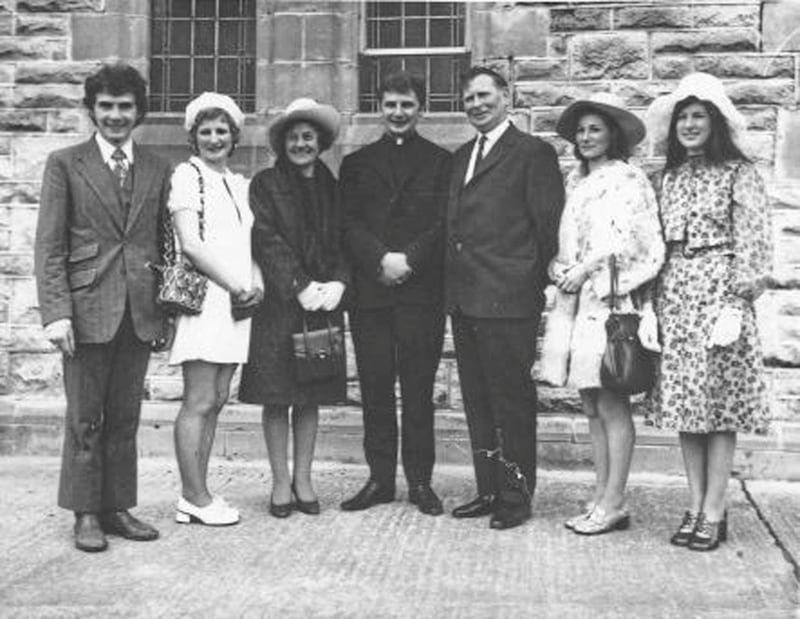
These events take up much of the Gospel and they are central to the celebration of the liturgy. The priest's role is to lead the people in prayer and remembrance of that which is central to our faith.
We together celebrate the Eucharist on many occasions during the year, obeying Our Lord's request to, "Do this in remembrance of me." To be able to do this has been a great source of joy to me.
All through the years many people have devoted their lives to the Good News, and even sacrificed their lives inspired by the life and message of Jesus and his devotion to the reign of God.
I have known many, including Fr Ragheed Ganni who was killed in Iraq in 2007. He used to work with us on Lough Derg. He is just one of the heroic missionaries who have inspired me over the years.
It was to work for the kingdom of God that I became a priest 50 years ago and I remained a priest even through difficult times.
I am conscious of my limitations and my limited success, but I believe in the long-term - that today we are sowing seeds that will be reaped in the future, just as priests and missionaries have done in Ireland and throughout the world in the ages past.
My life as a priest has been challenging at times, sometimes because of my own limitations and failings and sometimes because of the circumstances in which I was living.
I have drawn great strength from the Scriptures and from the Mass and the celebration of the Sacraments. I have drawn strength from Jesus Christ. The Jesus I now believe in is the Christ who is Risen and who goes before us and who is always leading us like the Good Shepherd to a new and safe world.
The courage of Jesus Christ and those first disciples we read about in the Acts of the Apostles always appealed to me. They inspire me to have courage and to live in solidarity with those who suffer, and to learn from their example and witness.
I have been inspired by some outstanding human beings who have lived in my lifetime, including St Óscar Romero, Rev Martin Luther King Jr, Dorothy Day, Nelson Mandela, Daniel Berrigan and Fr Des Wilson.
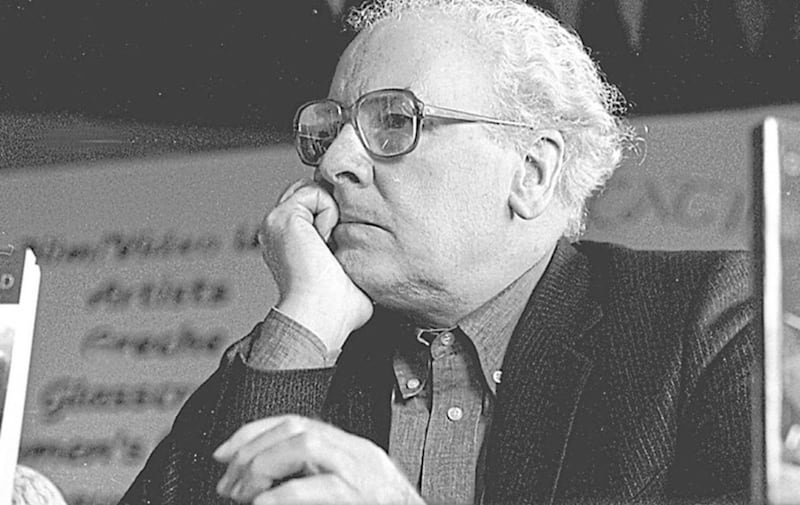
I have been touched and inspired by the faith of the people in the parishes in which I have served and in places I have visited. I went for a short visit to El Salvador in 1995 because I admired Archbishop - now Saint - Óscar Romero so much and wanted to pray at his tomb.
I saw there the faith of ordinary people who suffered a great deal during the war against the poor there. There were so many martyrs who died because they were witnesses for faith and justice.
I know that I would not have continued in this way of life without the support and encouragement of many good people - my family and extended family, neighbours, religious sisters and priests and people.
I hope I have made some contribution to the wellbeing of the people where I served as a priest and to the health of the environment. It has been an amazing journey.
Over the years my understanding of God and religion has changed a great deal, influenced in recent years by the writings and thoughts of Richard Rohr, Joan Chittister and others.
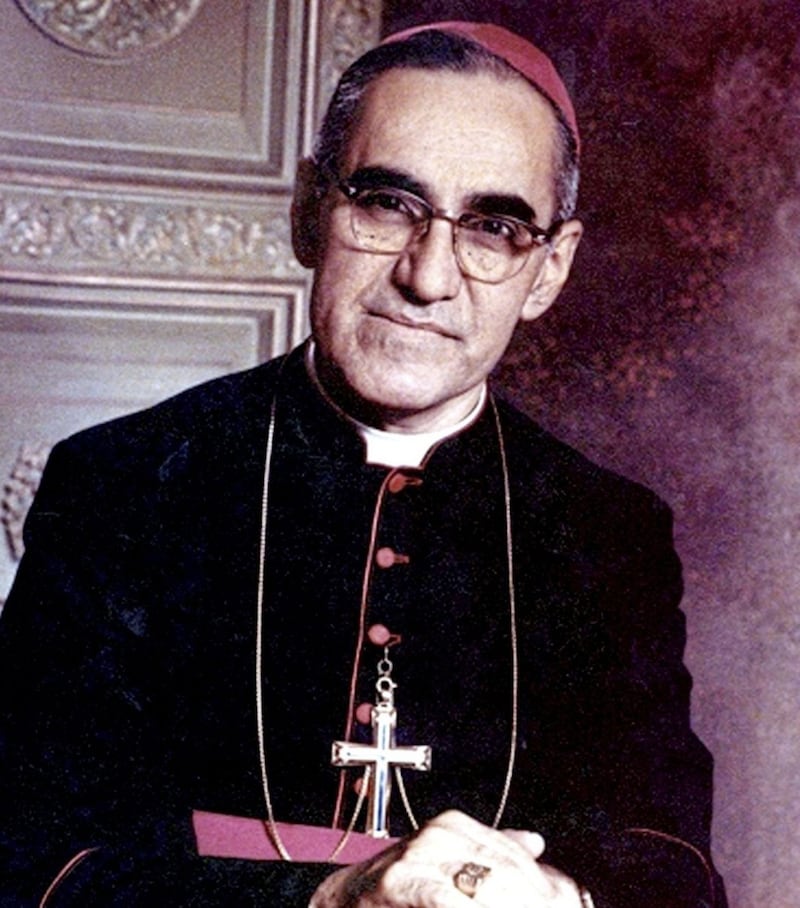
I have had to unlearn some of the things I once learned. For example, we were told when I was young that God only loves us when we are good. But as Rohr says: "The truth is that God loves us, not because we are good but because God is good."
I now look forward to the next 50 years...
